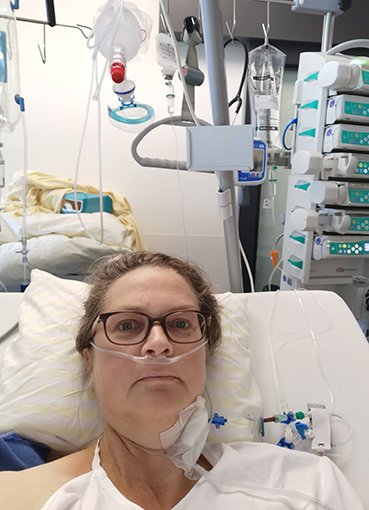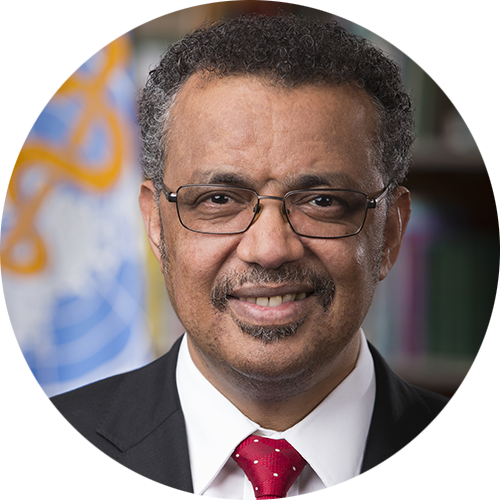In the shock room, the doctors immediately took care of me, contacted my husband as I was unresponsive, and performed one exclusion procedure after another. The Rega doctor had admitted me to hospital with suspected sepsis, among other things, but as my results were inconclusive, the search had to be continued. I don't know much about the 5 days in intensive care, just scraps of memory. On day 6, I was transferred to the cardiology ward. For a long time, I didn't understand what had happened or what was going on with me. It wasn't because of the doctors, but because my head couldn't take it in.
It turns out I had caught Streptococcus pyrogenes on the mountain pasture. This caused inflammation of the aorta and mitral valve (endocarditis). The embolisms spreading through the body caused several strokes and necroses on the left upper arm, the left hip, the fingers, and both feet. To save the massive necroses on both feet and both lower legs, the feet, and knees were operated on and flushed three times within 1.5 weeks. Many examinations such as MRIs, CTs, and heart echoes were carried out, which I can no longer remember. I was given antibiotics and strong painkillers for 4 weeks and had to lie in bed for 5 weeks.
It was only when the levels of inflammation were back in the normal range, and the doctors were able to justify it, that an ambulance took me back to a clinic in Munich. There I stayed for another 2 weeks for observation and further wound checks, followed by 7.5 weeks of rehab, IRENA program, physiotherapy and psychotherapy, stays in the pain clinic, and constant check-ups with various doctors. I had further operations on both feet in December 2022 and October 2023.
Due to the many necrosis scars and surgeries, as well as being in a cast for so long, I have to relearn everything that has to do with my feet. Everything! Things that everyone else does so naturally are a mental effort for me, nothing happens automatically. With everything I do comes pain, numbness, and tightness in my toes, ankles, and feet. Also, my cardiac output is reduced and I have been put on a cardio training program designed specifically for me.
Every day I am thankful to be able to stand on my feet and walk. I am thankful for my life and the many helping hands that have made it possible.
I never considered sepsis an issue, even though it's on my emergency asplenia pass. It has just not been on my radar. But now I ask myself questions like: How can I protect myself? How can I strengthen my immune system? How can I trust my body again? How can I become mentally stronger?
I don't think I'm the only one who feels this way. Support during the acute phase is important, but support afterward is just as important. Because I got sick in Switzerland and had to terminate a lot of things here in Germany, it wasn't easy to get back into the German system. Even though I'm back in the system now, I often feel like I have to justify myself because my pain, limited mobility, lack of concentration, reduced performance, and anxiety are not visible.
















